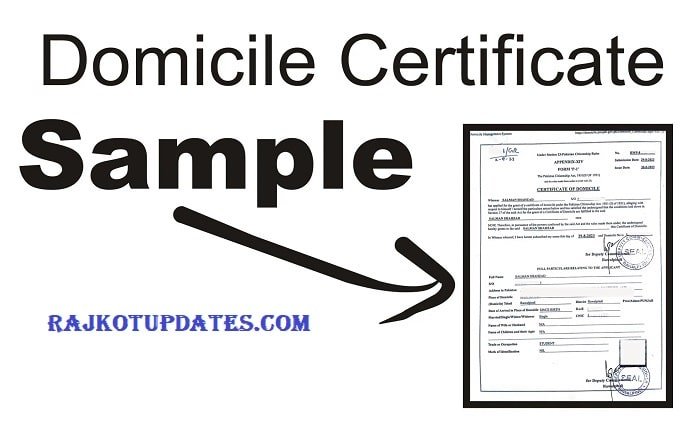Unveiling the Mystery of Domicile Certificates: A Comprehensive Guide to Proving Your Residency

In the intricate world of legal documentation, domicile certificates hold a unique position. These documents serve as tangible proof of an individual’s residency in a particular place, often bearing significant implications for various purposes, such as education, employment, and legal matters.
Whether you’re seeking admission to an educational institution, applying for a job, or settling property disputes, a domicile certificate can be a crucial piece of evidence to establish your residency status. However, obtaining a domicile certificate can often appear as a daunting task, shrouded in complexities and bureaucratic processes.
Understanding Domicile Certificates
A domicile certificate is an official document issued by a competent authority, such as a revenue or district administration office, that certifies an individual’s domicile in a specific place. This document serves as legal proof of residency, establishing an individual’s connection with a particular jurisdiction.
Purposes of Domicile Certificates
Domicile certificates serve a variety of purposes, including:
Establishing Eligibility for Educational Benefits: Many educational institutions require domicile certificates as proof of residency to determine eligibility for scholarships, fee concessions, or admission quotas based on domicile.
Applying for Government Jobs: Domicile certificates are often mandatory for government job applications, as they determine an individual’s eligibility for domicile-based reservations or quotas.
Settling Property Disputes: In property-related disputes, domicile certificates can play a crucial role in establishing an individual’s right to inherit or own property based on their place of residence.
Legal Proceedings: Domicile certificates can be relevant in various legal proceedings, such as divorce cases, child custody matters, or property disputes, to determine the applicable jurisdiction or an individual’s connection to a particular place.
Eligibility for Domicile Certificates
The eligibility criteria for obtaining a domicile certificate may vary depending on the specific jurisdiction. However, some general requirements often include:
Ordinarily residing in the place for a specified period: This typically ranges from six months to a year.
Intention to reside permanently: The individual must have a clear intent to continue living in the place indefinitely.
Documentary evidence of residence: This may include utility bills, rental agreements, employment records, or tax documents.
Process for Obtaining Domicile Certificates
The process for obtaining a domicile certificate typically involves:
Application Form: Filling out an application form with personal details, a residence address, and supporting documents
Submission of Application: Submitting the completed application form along with the required documents to the designated authority
Verification: The authority will verify the authenticity of the submitted documents and conduct an inquiry to confirm the applicant’s residency.
Issuance of Certificate: Upon successful verification, the authority will issue the domicile certificate.
Significance of Domicile Certificates
Domicile certificates hold significant value for individuals, as they serve as:
Proof of Residency: Domicile certificates provide tangible evidence of an individual’s residency in a particular place.
Access to Rights and Benefits: They can be instrumental in accessing education, employment, and other benefits based on domicile.
Legal Recognition: Domicile certificates are recognized by courts and legal authorities for various purposes.
Conclusion
Domicile certificates play a crucial role in establishing an individual’s residency status and connection to a particular jurisdiction. Whether you’re pursuing educational opportunities, seeking employment, or navigating legal matters, a domicile certificate can be a valuable asset. Understanding the eligibility criteria, application process, and significance of domicile certificates can empower you to obtain this essential document and safeguard your rights.




